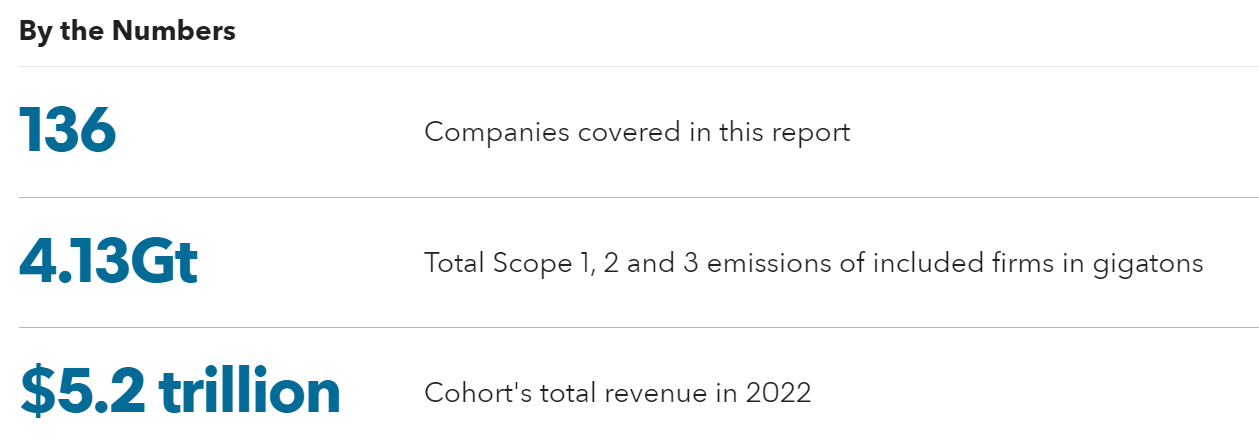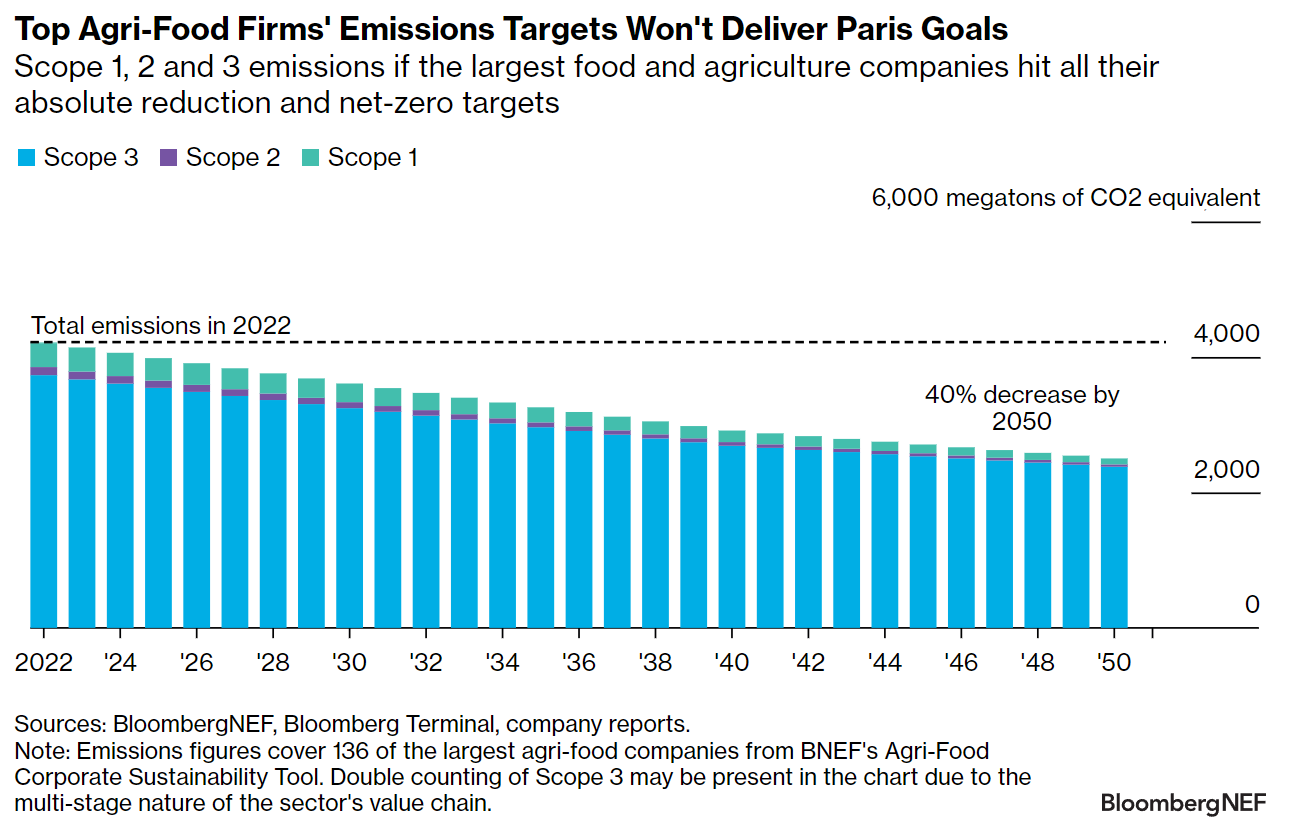By Alistair Purdie, Analyst, Land & Nature, BloombergNEF
Pressure is mounting on food and agriculture companies to redress their climate and nature impacts. The sector is responsible for almost a third of global emissions and is the leading driver of deforestation, water stress and plastic waste generation. This report, based on BloombergNEF’s Agri-Food Corporate Sustainability Indicators Tool, examines the environmental targets and commitments of 136 firms, exploring their ambition and scope, and compares the various stages of a complex value chain.


- Greenhouse gas emissions are a major issue for the cohort. While 68% have a net-zero target in place and 78% have committed to absolute emissions reduction targets, fewer are science-based.
- Many targets omit indirect emissions or entail only a modest percentage reduction. Even if all targets are hit, the sector would still be above a 2C pathway, implying the need for stronger action.
- Around half of the companies assessed have set a zero-deforestation target, though many fail to provide a target year and don’t cover all relevant agricultural commodities. Current disclosure on biodiversity is piecemeal, as is alignment with prominent reporting frameworks.
- Over 60% of companies have at least one water target. Again, however, the quality and credibility varies greatly between firms. More firms have targets for plastics use or production than for other packaging, operational waste and recycling.
- Stark differences exist between each stage of the supply chain for all issues assessed, reflecting divergent approaches to materiality.
BNEF clients can access the full report here.